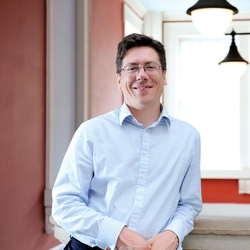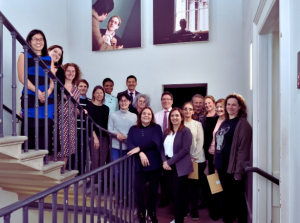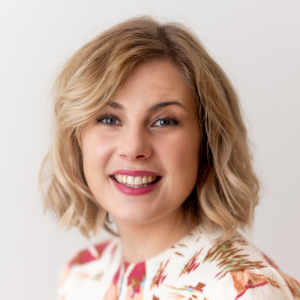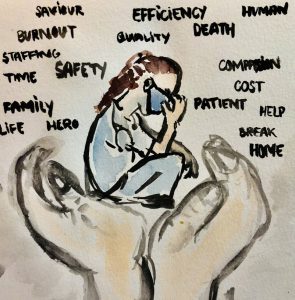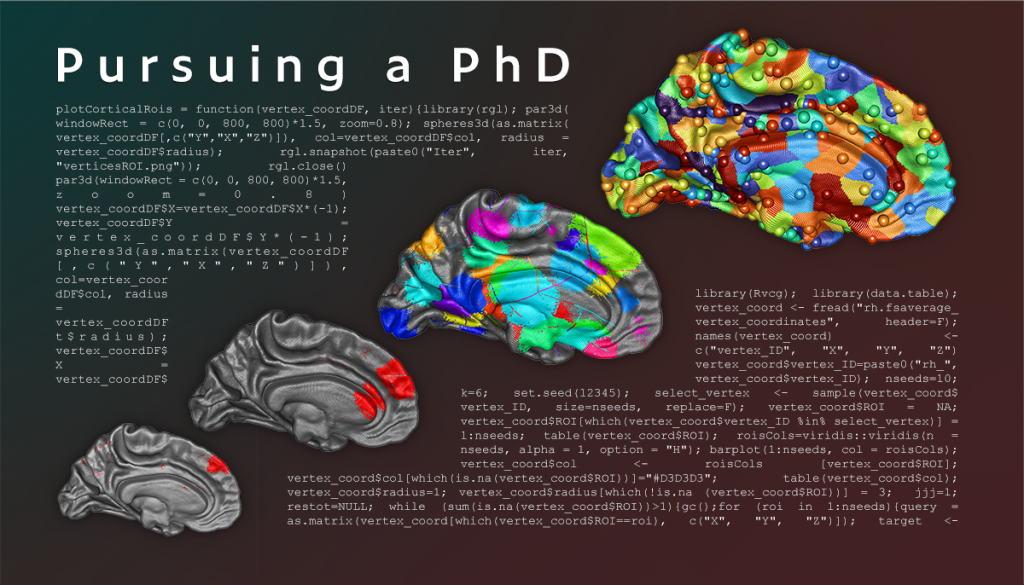Meet the King’s Doctoral Students’ Association Board for 2022/23
The King’s Doctoral Students’ Association (KDSA) is the recognised representative body of the Postgraduate Research (PGR) student community within KCL’s Student Union (KCLSU). As an academic association, we have representatives across all ten faculties and five campuses. All doctoral students at King’s are automatically part of KDSA.
KDSA works closely with the university to further improve the PhD journey:
- Ensure effective representation of part-time and full-time PhD students:
- uphold, extend, and defend the rights of all PhD students at King’s
- address student concerns such as funding issues, work-life imbalance or lack of support which undermine the student experience and research output
- enable collaboration and exchange of good practices among faculty and department representatives
- Foster equality, diversity, and inclusion of research:
- create and sustain peer support networks for both academic and non-academic topics
- improve and raise awareness of specialist support and resources available to different groups of PhD students
- Improve representation of Graduate Teaching Assistants (GTAs) and Graduate Research Assistants (GRAs) interests
- Organise and aid PhD activities:
- social events to strengthen the PhD community and connect PhD students across King’s
- career and employability events to build professional skills and strategic networks
- academic events to showcase research and facilitate academic collaboration
- Refine and raise awareness of resources available to PhD students such as:
- student services
- mental and physical health and wellbeing services
- career and employability services
- Library and IT support
- Promote sustainable research:
- encourage bottom-up sustainable initiatives
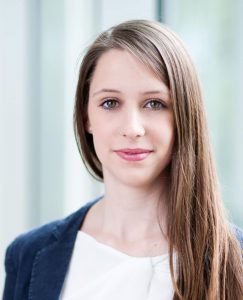
Lina Kramer – President
Lina is a third-year PhD candidate in the Department of Political Economy (DPE) which is part of the School of Politics and Economics (SSPP). In addition, she is a recipient of the London Interdisciplinary Social Science Doctoral Training Partnership (LISS-DTP) studentship award which is funded by the Economic and Social Research Council (ESRC).
Lina’s research focuses on how artificial intelligence can be used to design and improve tax policy. For this, she developed the AI Government, a deep reinforcement learning framework that allows her to run dynamic simulations and improve political and economic modeling.
Next to her PhD, Lina is this year’s President of King’s Doctoral Student’s Association. She is committed to help enhance the PhD student experience, foster a vibrant PhD community, and enable all to excel in their research at King’s!
Prior to her PhD, Lina worked for six years as a consultant promoting the digitalisation of the German government and public sector. She further holds an MSc. in Economics from the University of Cologne and a BA. in Politics, Administration and International Relations from Zeppelin University.
Contact Lina: lina.kramer@kcl.ac.uk
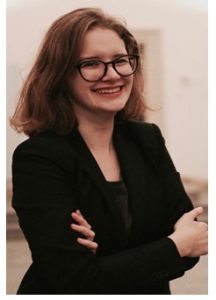
Aleksandra Olszewska – Vice President
Aleksandra (Ola) is a second year PhD student in the Institute of Pharmaceutical Science, FoLSM. As a recipient of the BBSRC’s London Interdisciplinary Biosciences Consortium (LIDo) DTP she is doing an iCASE PhD supported by Biotherapy Services Limited.
Her research project focuses on Biotherapy Service’s developed Leukocyte and Platelet-Rich Plasma Gel for Diabetic Foot Ulcers. As part of her project, she investigates the therapeutic properties of the gel as well as is trying to characterize the English Diabetic Foot adult population to better understand potential recipients of the product.
Ola has previous experience representing the student community. She was the Volunteering Officer for the Mile End Campus at her previous University, QMUL, from which she holds a degree in Biomedical Sciences.
Contact Ola: aleksandra.olszewska@kcl.ac.uk
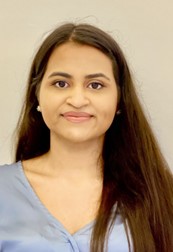
Navsheen Kaur – Secretary
Navsheen Kaur is a first year PhD student at the Faculty of Life Sciences and Medicine at King’s College London. Before commencing her PhD, she pursued her master’s degree in Developmental Neuroscience and Psychopathology and her BSc degree in Psychology and Language Sciences from UCL.
In her new role as a Secretary, Navsheen is hoping to support the president and the communication with other committee members and the KDSA community as a whole. She would act as the ‘organiser’ of KDSA and ensure that things run smoothly and handle all the communication within the KDSA community. During her time, she wants to help build a strong and collaborative community amongst doctoral students and staff at Kings.
Contact Navsheen : navsheen.kaur@kcl.ac.uk
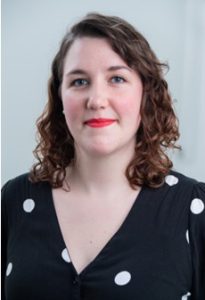
Tatjana Irina Zoller – Public Relations Coordinator
Tatjana is a third year PhD student in Basic and Clinical Neuroscience. She researches RNA-binding proteins in human cell models to better understand their basic functions and their role in neurodegeneration. She joined King’s College London in 2019 as a research assistant before starting her degree in February 2020. Previously she studied Biochemistry and Molecular Biology at the University of Bern, Switzerland from which she graduated in 2019 with an MSc.
In her new role Tatjana plans to work with the KDSA board to foster better conditions for all PhD students by improving student-supervisor relationships, connecting students across all of King’s campuses and by raising awareness for King’s student mental health, disability, and neurodiversity support. She is hoping to raise awareness for KDSA’s causes with more PGRs and to foster and strengthen relationships with other King’s societies and organisations.
Contact Tatjana: tatjana.zoller@kcl.ac.uk
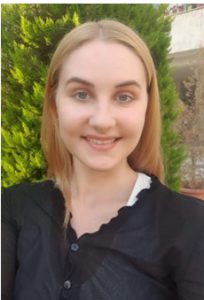
Leontine von Felbert – Representative for Strand Campus
Leontine is a third year PhD Student at the Defence Studies Department and her research focuses on the use of surrogate warfare in Great Power Competition. Prior to her PhD, she worked in Amman, Jordan for 3 years as a project manager and research fellow, focusing mainly on topics relating to regional security in the Middle East. Before moving to Amman, she completed her Master’s degree in Middle East and Central Asian Security Studies at the University of St Andrews.
As the Campus Representative for Strand, she is organising a variety of events and opportunities for the PGR community to come together, get to know each other and create friendships and support networks.
Contact Leontine: leontine.von_felbert@kcl.ac.uk

Jie Tang– Representative for St Thomas Campus
Jie is a third-year PhD student at the School of Biomedical Engineering & Imaging Sciences, King’s College London. In 2020 she graduated from Peking University with an MSc degree in Biomedical Engineering. In her graduate project with Dai group, she worked with “Enhanced Bioluminescence Imaging of Inflammation Based on Dual-color Nanobubbles”.
Her current research interests lie primarily in nanomedicine, molecular imaging and translational research. She strives to participate in translational medicine. With the necessary techniques and skills obtained as a PhD student, she is sure that she will be able to fulfil her personal goals.
Contact Jie: jie.2.tang@kcl.ac.uk
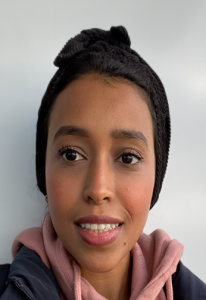
Manar Ageeli– Representative for Denmark Hill Campus
Manar is a first-year PhD student at the Institute of Psychology, Psychiatry and Neuroscience In the eating disorder group. Being especially interested in mindfulness and eating behaviors, her research focuses on combining mindfulness with neuromodulation.
She obtained her MSc. at the University of Nottingham in Clinical Nutrition. Her BSc. was obtained In Saudi Arabia also in Clinical Nutrition. Previously, she worked as a Dietitian in several clinics and as a freelancer. During this time, she became interested in mental health and in the role of values, feelings, thoughts, and sense of purpose in shaping eating habits.
As the representative of the Demnark hill campus Manar aims to improve connections and cooperation between students to improve everyone’s PhD student experience.
Contact Manar: Manar.1.ageeli@kcl.ac.uk

Xenia Stieger – Wellbeing Lead
Xenia is a second year PHD student in the Department of Political Economy and Institute of Psychology, Psychiatry and Neuroscience. Her main research focus lies on how we can use Virtual Reality to help with intergroup conflicts and to increase resilience in vulnerable people.
She did her undergraduate studies at the University of Glasgow, where she was also part of the student representative council and a representative for the School of Psychology. During her Masters at the University of Leiden, she also engaged herself in representing students from her cohort and organised wellbeing lunches.
With her background in Psychology, her own mental health history and experience as a trained Mental Health First Aider, Xenia wants to ensure that other PGR students know who to turn to when they are struggling. Furthermore, she aims to build a compassionate PhD community of mutual support.
E-Mail: xenia.stieger@kcl.ac.uk

Zeynep Sahin, Equality – Diversity and Inclusion Co-Lead
Zeynep is the Diversity and Inclusion co-lead for KDSA. She is a first-year PhD candidate at the Department of Old Age Psychiatry where her work uses retinal imaging and artificial intelligence to detect and diagnose neurodegenerative diseases at the earliest time-point. Prior to joining KCL, Zeynep was a research fellow at the University of Cambridge.
Contact Zeynep: zeynep.1.sahin@kcl.ac.uk
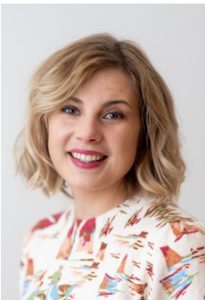
Lienkie Heilien Diedericks – Equality, Diversity and Inclusion Co-Lead
Lienkie is the other Diversity and Inclusion co-lead for KDSA. She is a final-year PhD student at the Department of Global Health and Social Medicine (GHSM). Her research is centered around the South African tuberculosis epidemic. She is interested in how the South African colonial-apartheid context has shaped public health and policy discourses around tuberculosis, and how these discourses overlap with, differ, or affect, the construction of drug-resistant TB as a health security threat.
Lienkie is also employed by the Centre for Doctoral Studies as a Disability Support Officer on a part-time basis, and she is a Service Officer on the Neurodiversity and Mental Health Society Committee. Prior to her PhD, Lienkie completed an MSc in Bioethics and Society at the GHSM department at King’s. She also holds a BA in analytic philosophy and French, and a postgraduate degree in analytic philosophy from the University of Cape Town.
In her new role as EDI co-lead, Lienkie would like to champion PGR disability issues.
Contact Lienkie: heilien.diedericks@kcl.ac.uk
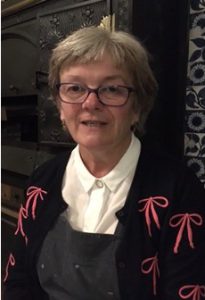
Susan Steward – Representative for Part-Time PGRs
Susan is in the final stages of her PhD in the Department of Geography. Her thesis is entitled ‘Growing up in North Norwich in the New Millennium: influences of neighbourhood and secondary school on shaping young lives in a disadvantaged area of a small city’ and so combines the disciplines of Geography and Education.
At the beginning of her PhD study, Susan worked part-time in the University of Cambridge as a Research Associate in Education and so has direct experience of trying to balance the demands of working, studying and family life at the same time. She also lives outside of London in Lowestoft (Suffolk) – England’s most easterly town (and also one of its most inaccessible).
Contact Susan: susan.steward@kcl.ac.uk
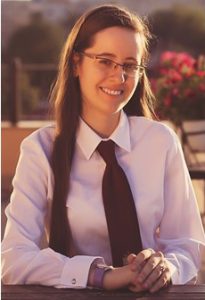
Diana Catana – Co-Representative for International Students
Diana is a third-year PhD student in the Department of Physics at King’s College London. Her research focuses on investigating the effects of mechanical stress, or applied force, at cellular and molecular level. Previously to joining King’s, she got her integrated masters in Biochemistry in 2020 from UCL (University College London). Her passion for advocating for a better international students’ experience goes back several years to when she worked for the International Students House as a Resident Advisor. This role gave her the experience necessary for becoming a #WeAreInternational student ambassador for UKCISA (UK Council for International Student Affairs), a position that she has been holding since January 2022.
In her role as Representative for International Students for the KDSA board, Diana aims to be the voice for international students and advocate for a parity of experience with home students. This, in turn, would reduce any additional unnecessary stress and smoothen the journey of any international PhD student and allow them to make the most of their time at King’s and in the UK.
Contact Diana: diana.catana@kcl.ac.uk

Zhaozhang Sun – Co-Representative for International Students
Zhaozhang is a third-year PhD candidate in the Department of Culture, Media and Creative industries at KCL. She is currently doing an interdisciplinary project in health communication, which is fully funded by King’s-China Scholarship Council. Her research focuses on investigating effective communication strategies that may be beneficial for people’s diabetes-related knowledge, attitudes and behaviours.
Prior to her PhD, she worked as an executive editor at a national media in China and was awarded a National Journalism Prize. She got her bachelor’s degree in Language and Literature at Central South University, China, and then completed MA in International Journalism at University of Leeds, UK.
As the Representative for International Students, Zhaozhang aims to work proactively with the KDSA board and contribute positively to improving the experience of international PhD students at King’s, including the transitional periods before and after.
Contact Zhaozhang: zhaozhang.sun@kcl.ac.uk
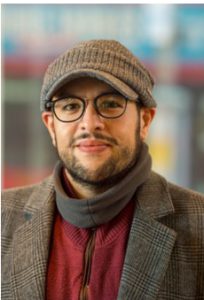
Raúl Zepeda Gil – Representative for Graduate Teaching Assistants (GTAs) and Graduate Research Assistants (GRAs)
Raúl is a PhD candidate in the Defence Studies Department and Graduate Teaching Assistant for the War Studies and European & International Studies. His current research project is about young men’s mobilisation into the current Mexican Drug War. He has a BA in Political Science from the National Autonomous University of Mexico (UNAM) and an MA in Political Science from El Colegio de Mexico. In King’s College London Student Union, he has been twice elected Delegate to the National Union of Students (NUS) on a working-class agenda. He was president of the Mexican Society, Postgraduate Rep in the LGBT Society, and president of MexSocUK, the national organisation representing Mexican Societies in UK Student Unions.
Contact Raúl: zepeda.raul@kcl.ac.uk
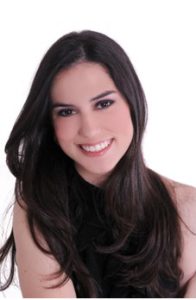
Juliana Fernanda Holanda Bezerra Pereira – Representative for Healthcare Professionals
Juliana is in the fourth year of her PhD at the University of São Paulo and came to King`s College Hospital for a PhD sandwich/joint Program due to a partnership between the University of São Paulo and King`s College London.
Juliana holds a specialist title in Anaesthesiology and Pain Management, and for seven years she worked as a Consultant Anaesthestist in private and public hospitals in São Paulo. Now, Juliana is based in the Department of Anaesthesia and Critical Care Medicine at King`s College Hospital.
Juliana’s working thesis title is “Simplified algorithm for prevention of postoperative nausea and vomiting in an oncological hospital: a quasi-experimental study”, and her research interests are Anaesthesia in Oncological patients, Perioperative Medicine, Patient Blood Management, Anaesthesia in Obstetric patients, and intra uterus procedures.
Contact Juliana: juliana.pereira2@nhs.net
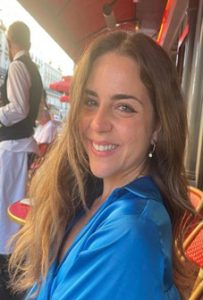
Chara Christodoulidou – Representative for the Faculty of Social Science and Public Policy (SSPP)
Chara is a first-year PhD student at the Department of Political Economy. Her research is focused on conflict-related violence against women and female political representation. She has previously studied law and completed her master’s in Public International Law at Queen Mary University of London in 2018. Prior to joining King’s, Chara held compliance positions and has worked as a litigation lawyer. Chara is looking forward to help her fellow PGRs to have the best experience while at King’s.
Contact Chara: chara.1.christodoulidou@kcl.ac.uk
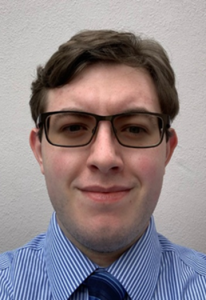
James Rowland – Representative for the Faculty of Arts & Humanities
James is a fourth-year PhD student in the Department of History at King’s College London. His research utilises contemporary newspapers and periodicals, parliamentary debates, works of political philosophy and travel literature to explore the influence of America on nineteenth-century British political reform debates leading up to the Second Reform Act.
Prior to his PhD, he was a master’s student at King’s where he completed his thesis examining the impact of the American Civil War on the British Press. As the representative for the Faculty of Arts & Humanities on the KDSA, James looks forward to working with the board to promote student welfare and strengthen the research community this year. he
Contact James: james.rowland@kcl.ac.uk
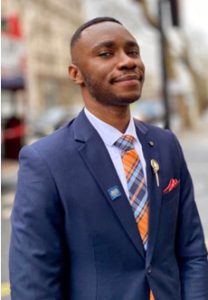
Mmekidmfon Umanah – Representative for King’s Business School
‘Mfon is a Doctoral student at the King’s Business School. His research focuses on emerging digital technologies and how they can help social impact organizations balance paradoxical tensions in their business models and inherently scale their operations. ‘Mfon is a self-motivated individual who has spent the last 6 years running and leading social impact organizations.
Prior to joining King’s. He was Founder and CEO of Aimcare Health, a health tech company strengthening the primary healthcare system in West Africa by improving access to medical devices and supplies in the region. Aimcare provides inventory financing and inventory management solutions to clinics, pharmacies and patent medicine stores, helping solve their supply chain issues.
He plays golf, football, chess and loves afrobeats.
Connect ‘Mfon: mmekidmfonabasi.umanah@kcl.ac.uk
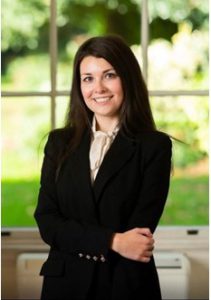
Marianna Ryan – Representative of the Dickson Poon School of Law
Marianna is a second-year part-time PhD student in the Dickson Poon School of Law.
Marianna’s research is in the field of intellectual property laws. Her study is dedicated to copyright in authors’ contracts and, in particular, fair remuneration and transparency triangle provisions of the Digital Single Market Directive 2019/790.
Marianna is employed full-time as a solicitor in a private law firm in London.
In her role as a representative of the Dickson Poon School of Law, Marianna is committed to making positive changes in the lives of doctoral students.
Contact Marianna: marianna.ryan@kcl.ac.uk
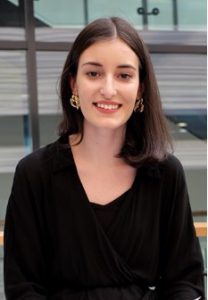
Mariana da Silva – Representative for the Faculty of Life Science and Medicine (FoLSM)
Mariana is a third-year PhD student at the CDT in Smart Medical Imaging at the School of Biomedical Engineering and Imaging Sciences. Her doctoral research focuses on the use of interpretable AI to predict cognitive development from brain MRI data. Mariana sits on the Student Board of the Medical Image Computing and Computer-Assisted Intervention Society. She is passionate about Open Science and the intersection of Science and Politics.
In 2019, she completed an Integrated Master’s Degree in Biomedical Engineering and Biophysics from the University of Lisbon, Portugal, and conducted her MSc thesis project at the University of Cambridge. During this time, she was part of the Student Board in the Biomedical Engineering Society at the University of Lisbon.
In her role as the Representative for the FoLSM at the KDSA board, Mariana aims to tighten connections between students from the various departments within the faculty and be a voice for all the graduate students in our community!
Contact Mariana: mariana.da_silva@kcl.ac.uk

Sinuhé Perea – Representative for Faculty of Natural, Mathematical & Engineering Sciences (NMES)
Sinuhé is a predoctoral student in Photonics and Nanotechnology at King’s College London, literally trying to see (with light) what is hidden. He likes to solve problems, but since he rarely finds any solution, preferring to learn and ask, becoming part of a SPIE Student Chapter, contributor for MDPI and IoP, and recently Wolfram Research ambassador. He graduated in Physics and in Mathematics from the University of Oviedo (Spain) where he was also Computational Assistant at Faculty of Chemistry and awarded as best national young researcher by CEULAJ & ICMAT (CSIC).
Sinuhé’s current research focuses on near-field and topological photonics in (lossy) systems, light nano-routing, skyrmions, algebraic number theory (odd perfect numbers conjecture because remember, even primes are odd), medical physics, geology, sustainable solutions, and freshman economics.
Contact Sinuhé: sinuhe.perea@kcl.ac.uk
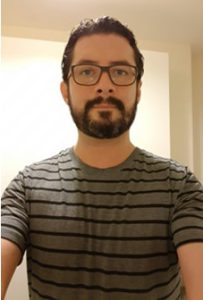
Oscar Allan Furlong – Representative for the Faculty of Dentistry and Craniofacial Sciences (FoDOCS)
Allan is a third-year PhD student in the Faculty of Dentistry and Craniofacial Sciences. His research involves microbial in-vitro experiments using natural products to test their therapeutic potential in managing dental diseases.
In 2007, Allan obtained his bachelor’s degree in dentistry from the University of Guadalajara in Mexico. Afterwards, he worked in private practice as a dentist and a health sciences lecturer at the University of Valley of Mexico. In 2017, Allan obtained his master’s degree in biomaterials at the University of Manchester.
Allan wants to enhance the student experience in the Faculty of Dentistry and Craniofacial Sciences through social and academic events.
Contact Allan: oscar_allan.furlong_lopez@kcl.ac.uk

Ling Wang – Representative for the Nightingale Faculty of Nursing, Midwifery and Palliative Care (NFNMPC)
Ling is a third-year PhD student at King’s College London studying resilience and psychological first aid. She has practiced clinically in China with Orthopedic patients and emergency response where she saw a growing crisis of poor mental health afflicting patients and healthcare workers in the frontline. Her doctoral research focuses on the culturally developing and testing of a Psychological First Aid training program for empowering frontline healthcare workers.
Prior to King’s, she completed BA in China and MSc in Ireland. She will integrate her local practice and international education to develop social and behavioral intervention, to be a voice for vulnerable suffering patients and to advance health outcome improvements.
As the representative for the Nightingale Faculty of Nursing, Midwifery and Palliative Care on the KDSA, Ling looks forward to working with the board to improve experience for postgraduate students this year.
Contact Ling: ling.1.wang@kcl.ac.uk
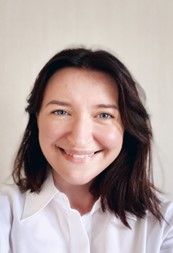
Mariia Bogdanova – Representative for the Institute of Psychiatry, Psychology and Neuroscience (IoPPN)
Mariia is a 1st year MRC DTP PhD student at the department of Psychological Medicine, Institute of Psychiatry, Psychology and Neuroscience (IoPPN). Her research is on the brain mechanisms of motivational deficit in depression. She has also recently begun her new role as an IoPPN Representative.
Before that, she graduated from Lomonosov Moscow State University with a Clinical Psychology degree. In addition to her research experience, she was also experienced in communicating and teaching science. For the past five years, she worked as an Assistant Lecturer at Sechenov Medical University and a researcher at the associated hospital. Also, she supervised 15 undergraduate thesis projects. This experience helped her understand how to be on the other side of scientific inquiry, this time as a supervisor.
In her new role, Mariia would like to improve student-supervisor relationships at IoPPN, raise awareness for mental health at King’s, and organise new events for PGR students.
Contact Mariia: mariia.bogdanova@kcl.ac.uk
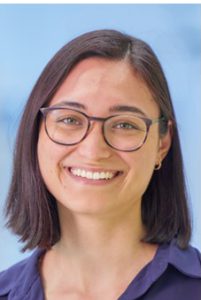
Miki Uchima – Representative for the Francis Crick Institute
Miki is a first-year PhD student at the Francis Crick Institute and King’s College London. Being especially interested in studying host-pathogen interactions, her research focuses on influenza virus host adaptation and flu-mediated host transcription shut-off.
Previously, she obtained both BSc. and MSc. at the University of Bonn focusing on biomedicine and immunobiology. During this time, she was part of the student council molecular biomedicine. Further, she has worked as a research assistant at the University of Bonn and at Yale University.
Next to her PhD, Miki is a member of the student committee of the Francis Crick Institute and the King’s Doctoral Student’s Association. She aims to foster connections between students from King’s Campuses, the Francis Crick Institute and other collaborators of King’s and improve everyone’s PhD student experience.
Contact Miki: miki.uchima@kcl.ac.uk
